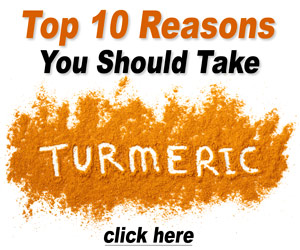Quercetin Protects Skin from UV Radiation

Most of us know the dangers associated with too much sun on our skin. More than just the temporary pain of a sunburn, ultraviolet A (UVA) and B (UVB) rays can cause long-lasting, cumulative oxidative cell damage. This UV damage to our skin can lead to at worst skin cancers (e.g., basal and squamous cell carcinomas and melanoma) and at the least, unsightly wrinkles and other sun damage—adding years to your appearance.7
Recently the Human Nutrition Research Center on Aging at Tufts University conducted an analysis of research which now suggests that dietary nutrients can play a skin-protective role. As a flavonoid with potent antioxidant powers, eating quercetin-rich foods can help reduce the effects of free radical damage on cells from UV exposure. Immediate relief from the redness and inflammation associated with sunburn has also been shown with topical application of quercetin-containing leaf extracts from Culcitium reflexum plants.7
Animal studies have determined that administration of quercetin prior to UV exposure, whether by injection or topical cream, protects against UVA and UVB free radical damage, as measured by markers for oxidative stress. UVA is known to stimulate production of enzymes associated with the breakdown of collagen, and lab studies show that quercetin blocks this enzyme’s activities.7
So in addition to practicing safe sunscreen habits, load up on some healthy foods that contain plenty of quercetin. Some good choices are:
- Almonds. Not only are they a good source of quercetin, but they contain a large amount of vitamin E too, another antioxidant nutrient that studies have shown protect against UV skin damage. Almonds are also good sources of magnesium, calcium, iron, fiber and protein, making them a sound choice for overall health as well.7,27
- Apples. Eat them uncooked with the skin for the most benefit, since most of the antioxidants and vitamins (e.g., vitamin C) are in the peel. The skin is also a good source of beta-carotene, which is linked to good skin health. Why not try some chopped apple in a salad with a small handful of almonds? Combining vitamins C and E actually provides more UV skin protection than by themselves, and with the extra antioxidant kick from quercetin you’ll be really doing your skin a favor.7,27 Nutritionists recommend the Granny Smith and Braeburn types of apples for maximum amounts of quercetin, and to store in the refrigerator no more than 100 days (after that quercetin content diminishes).29
-
Apricots. Fresh or dried, this bright orange fruit has lots of quercetin, vitamins A and C, fiber, and both beta and gamma carotenes. Clinical trials have shown that beta-carotene, the carotenoid that produces the vibrant orange color in apricots and other fruits and vegetables, has an overall skin-protective effect.7,27
- Capers. These tangy bite-sized buds are loaded with quercetin—a whopping 1800 mg/kg!26 Garnish any Mediterranean-style poultry or seafood dish for a delightful and skin-healthy citrus flavor that pairs well with lemon and garlic.
- Onions. An abundant source of dietary quercetin, onions are also high in vitamin C and chromium. Studies have shown that all of these nutrients promote healthy skin and hair.29 For the highest amount of quercetin be sure to use the outermost rings of the onion.26
- Tomatoes. These juicy, lycopene-rich red fruits are also high in quercetin.7,26 Combining both nutrients is sure to maximize UV protection, especially since clinical trials have demonstrated the antioxidant effectiveness of both.7 Not only are tomatoes a natural sunscreen, they are also potent at fighting wrinkles.29 Nutritionists recommend eating them cooked to get the benefits of both antioxidants; and be sure to look for organic tomatoes since they have almost 80% more quercetin than conventionally grown ones.26,29
its antibacterial qualities.


